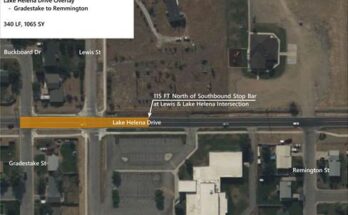A coalition of 16 attorneys general, led by Montana Attorney General Austin Knudsen, has written to Wells Fargo’s CEO, Charles Scharf, demanding answers regarding the bank’s debanking policies. These policies seem to be aligned with the Biden administration’s agenda.
The attorneys general are concerned about the bank’s decision to close accounts of Republican candidates and gun industry participants that it considers a risk. Wells Fargo has committed to the Net-Zero Banking Alliance (NZBA), aiming to align their customers’ greenhouse gas emissions with the Biden administration’s net-zero goals by setting 2030 emissions reduction targets.
“Wells Fargo is pushing the Biden administration’s anti-gun and anti-traditional energy policies and discriminating against customers who don’t fall in line with their political beliefs,” Attorney General Knudsen stated in a press release. “As attorney general, it’s my job to protect Montanans from discriminatory business practices. I will continue to investigate and fight against any illegal actions that could impact Montana businesses and consumers.”
The six largest banks in the country, including Wells Fargo, are acting as economic regulators, implementing mandates that the Biden administration has been unable to pass through the democratic process. The NZBA requires member banks to set 2030 emissions reduction targets, which cover sectors that account for nearly the entire economy.
Wells Fargo has announced targets in the oil and gas, power, automotive, steel, and aviation sectors. However, since the targets depend on emissions produced by clients, they could lead to debanking. For instance, Wells Fargo has pledged to reduce its oil and gas clients’ emissions by 26% by 2030 on its way to net zero by 2050. If the clients cannot reduce their emissions enough to meet Wells Fargo’s goal, the bank must decide whether to condition financing on emissions reductions or cut off financing to enough oil and gas companies to achieve the specified reductions.
Wells Fargo has also made public commitments that it will deny services to certain companies. For example, the bank has stated it “will not provide new direct credit, capital markets origination or corporate advisory services to, or make corporate principal investments in, clients deriving the majority of their revenues from the extraction of coal” or to “coal mining companies deriving the majority of their revenues from mountaintop removal coal operations.”
Last year, Wells Fargo abruptly cancelled a Florida gun dealer’s line of credit and sent a letter stating that “the reason for this action is: Banking guidelines excludes lending to certain types of businesses.” The bank has also amended a multi-billion-dollar credit agreement with BlackRock in which Wells Fargo agreed that if the asset manager met racial quotas, then Wells Fargo would decrease the amount that it had to pay under the agreement and if the asset manager failed to meet racial quotas, then BlackRock would have to pay more to Wells Fargo.
“Wells Fargo’s conduct and commitments may implicate state unfair and deceptive acts and practices (UDAP) laws or civil rights laws. Additionally, if banks like Wells Fargo are restricting access to financial services to act as pseudo-governmental gatekeepers, then states need to revisit the current division of supervision power between state and federal regulators for the largest banks,” the attorneys general wrote. “We urge Wells Fargo to move away from the debanking policies it has embraced, as well as those it appears to be poised to embrace.”
Attorney General Knudsen has asked Wells Fargo to respond to several questions by April 4. These include what Wells Fargo will do if its existing clients do not reduce emissions enough for it to meet its emissions reduction targets, what are the certain types of businesses that Wells Fargo will not lend to as referenced in the letter to Wex Gunworks, and why Wells Fargo agreed to financing terms with BlackRock that incentivize BlackRock to employ a certain percentage of certain races and avoid hiring employees of other races.
The Attorneys General from Arkansas, Idaho, Indiana, Kansas, Louisiana, Mississippi, Missouri, Nebraska, New Hampshire, Ohio, South Carolina, Virginia, West Virginia, Utah, and Wyoming also joined the effort.


